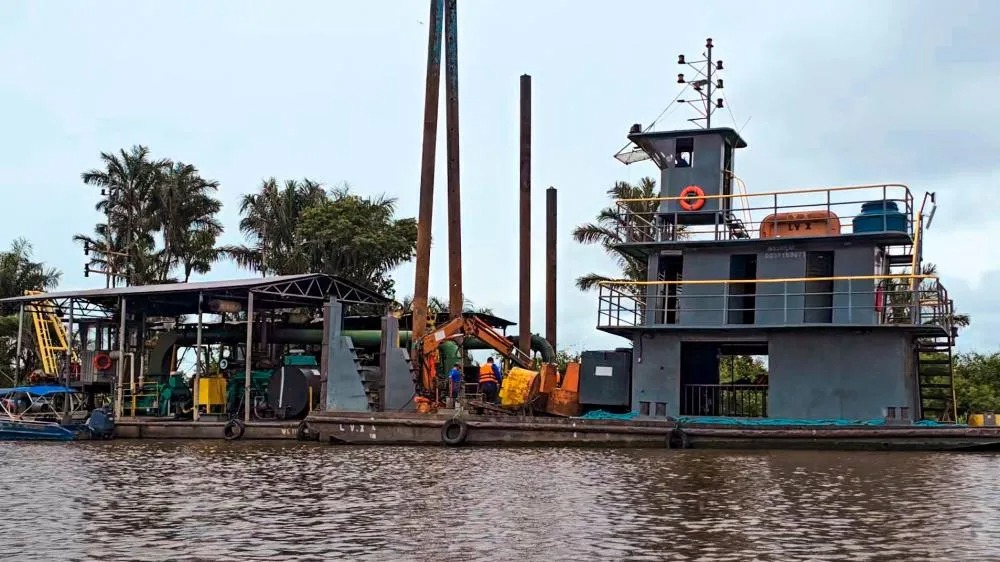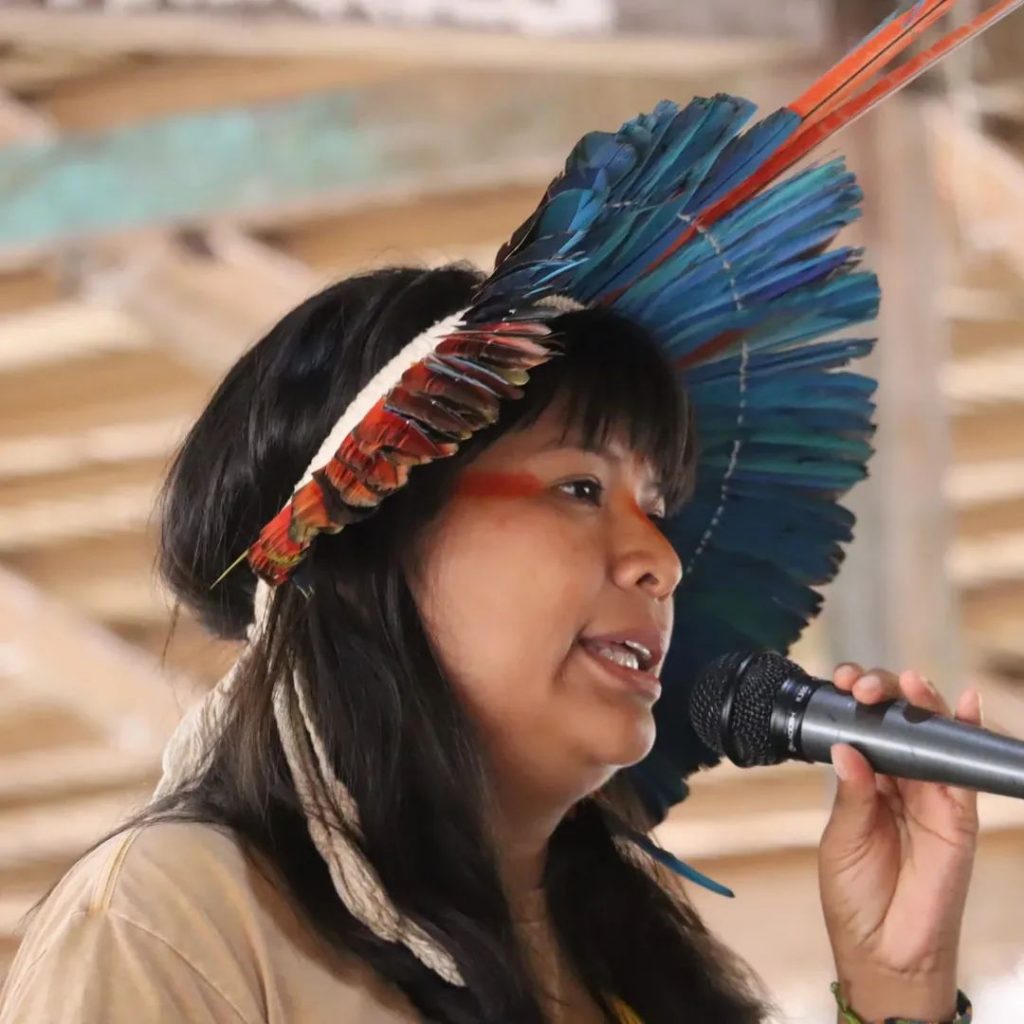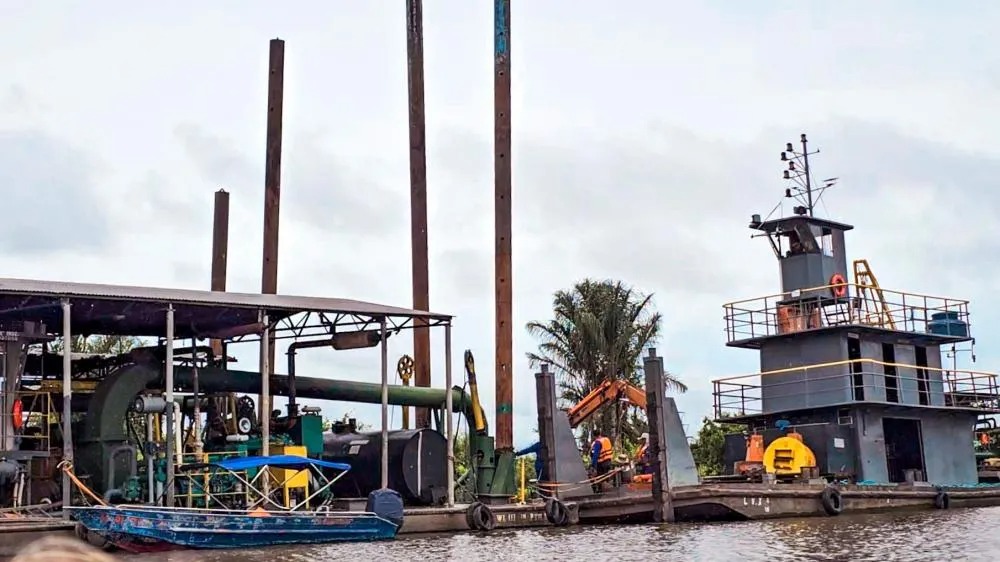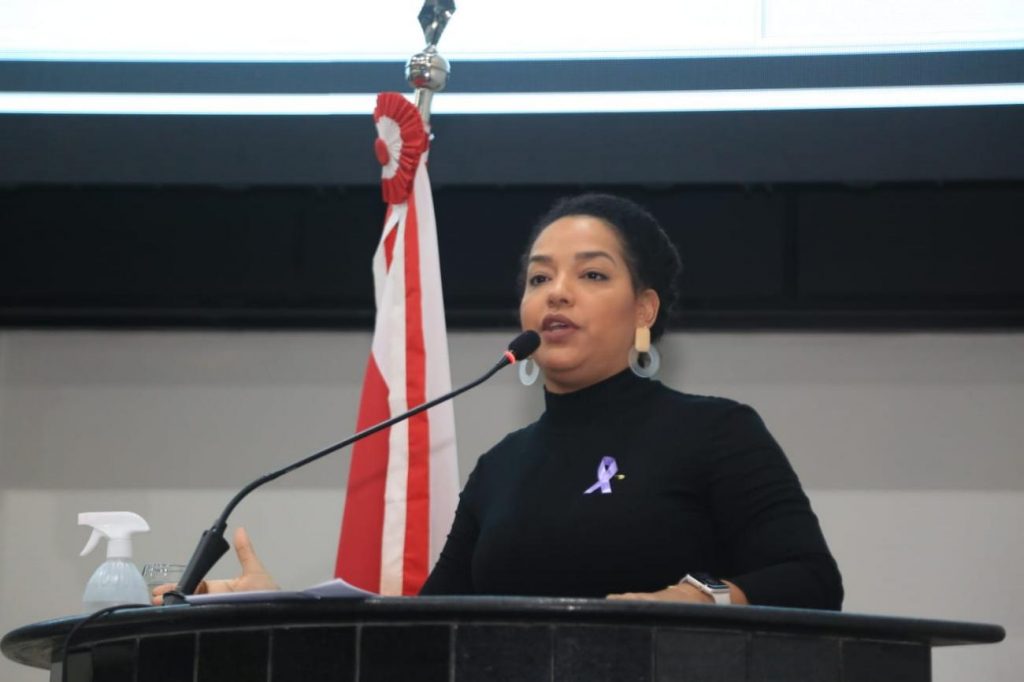Indigenous peoples denounce Pará government for dredging in the Tapajós River
20 de March de 2025

By Fabyo Cruz – From Cenarium
BELÉM (PA) – Indigenous peoples from the Lower Tapajós have denounced the Government of Pará for authorising dredging in the Tapajós River without environmental studies and without consulting the traditional communities in the region. The Tupinambá Indigenous Council (Citupi) and the Tapajós and Arapiuns Indigenous Council (Cita) submitted the complaint to the Federal Public Prosecutor’s Office (MPF), which has requested the suspension of the authorisation granted by the State Secretariat for the Environment and Sustainability (Semas) to the National Department of Transport Infrastructure (Dnit).
Speaking to CENARIUM, Citupi coordinator Raquel Tupynambá stated that, for some time, indigenous communities had been hearing rumours about the river being dredged to facilitate the passage of barges loaded with grains, especially soya and maize. Last year, during the dry season, a boat was spotted navigating the river while taking measurements, and there are now reports that dredging is already occurring in some sections.
“We gained access to Semas’s authorisation, which allows dredging at three specific points where there are large sandbanks and rocks: the regions of Itapaiúna, Monte Cristo, and the Amorim River, which is right in front of our territory. This concerns us because the movement of sand on the riverbed may affect other areas, making the water more turbid and impacting the distribution of fish,” said Raquel.

Another concern for the communities is mercury contamination. She explained that the Tapajós River suffers from high levels of mercury sedimentation, and dredging could intensify the dispersal of this heavy metal, increasing contamination in the fish—the primary food source for indigenous populations.
“We do not know whether environmental and social impact studies have been carried out. No one has this information. How is this dredging being conducted? That is the question we pose to the authorities,” said the Citupi coordinator.
Lucas Tupinambá, a member of Cita, reinforced these concerns: “The dredging will directly impact fish reproduction, as many of these locations are known to us as breeding grounds. Moreover, we have already noticed the spread of silt along the riverbanks, and the river’s colour is changing,” he said.

MPF Challenges Authorisation
According to the MPF, the permission granted for the removal of sandbanks and river navigation markings between Santarém and Itaituba violates a preliminary court ruling from December 2023. The ruling requires environmental, climatic, and socio-economic studies to be conducted before any authorisation for port and waterway projects in the region. However, the authorisation, valid until February 2026, was granted without an Environmental Impact Study and Environmental Impact Report (EIA/Rima), without a climate impact assessment, and without consulting the affected communities.
The complaint highlights that dredging threatens areas of significant environmental and social importance, such as the Tapajós-Arapiuns Extractive Reserve (Resex) and the Tapajós National Forest (Flona), territories inhabited by indigenous peoples, quilombolas, artisanal fishers, and riverine communities.
Indigenous leaders have recorded footage of dredgers operating in the Prainha community, inside the Tapajós Flona, and have reported to the MPF that the river’s colour changed just days after dredging activities began. They claim that the impacts on aquatic fauna and fishing—the primary food and income source for many families in the region—are already evident.
The Main Concerns of the Affected Communities Include:
- Water contamination due to sediment and mercury disturbance;
- Damage to aquatic flora and fauna, jeopardising local livelihoods;
- Threats to the food security of traditional communities;
- Social insecurity resulting from the lack of consultation and dialogue with indigenous peoples.
The MPF emphasised that Semas’s authorisation has no legal basis and violates the constitutional requirement for environmental licensing for activities with potential environmental degradation. “The granted authorisation not only breaches the court ruling but also contradicts environmental legislation and the rights of indigenous peoples,” the agency stated.
In light of these irregularities, the MPF has requested the courts to immediately suspend the authorisation, halt dredging activities, and remove any installed equipment and ongoing works. It has also requested a daily fine of R$ 300,000 if the decision is not complied with.
Additionally, the MPF demands that the State of Pará be fined 20% of the case’s value for failing to comply with the court ruling and for issuing the authorisation without adhering to the proper environmental licensing process.
MP Demands Clarifications
State Deputy Lívia Duarte (PSOL) has also demanded clarifications from Semas regarding the granted authorisation. In an official letter sent to the Secretary of the Environment, Raul Protázio Romão, the parliamentarian questioned the legal grounds of the decision and requested information on the environmental impact studies that supported the dredging approval.

“Considering the potential environmental impacts arising from dredging—such as alterations in sediment dynamics, risks to aquatic fauna and flora, and contamination from dredged material disposal—and given the importance of mitigation measures that should be adopted, I request clarifications on the following points:
- Legal grounds and technical criteria that supported the authorisation of dredging without prior consultation with indigenous peoples and traditional communities;
- Presentation of any environmental impact studies and analyses conducted, if available, that justified proceeding with dredging in the Tapajós River;
- Information on measures taken to mitigate the environmental and social impacts of this activity;
- The Secretariat’s commitment to immediately carrying out prior, free, and informed consultation, in accordance with constitutional and international guidelines, ensuring the participation of indigenous peoples in decisions affecting their territories,” Lívia Duarte stated in the letter.
Semas’s Response
CENARIUM requested a statement from Semas but has not yet received a response.

